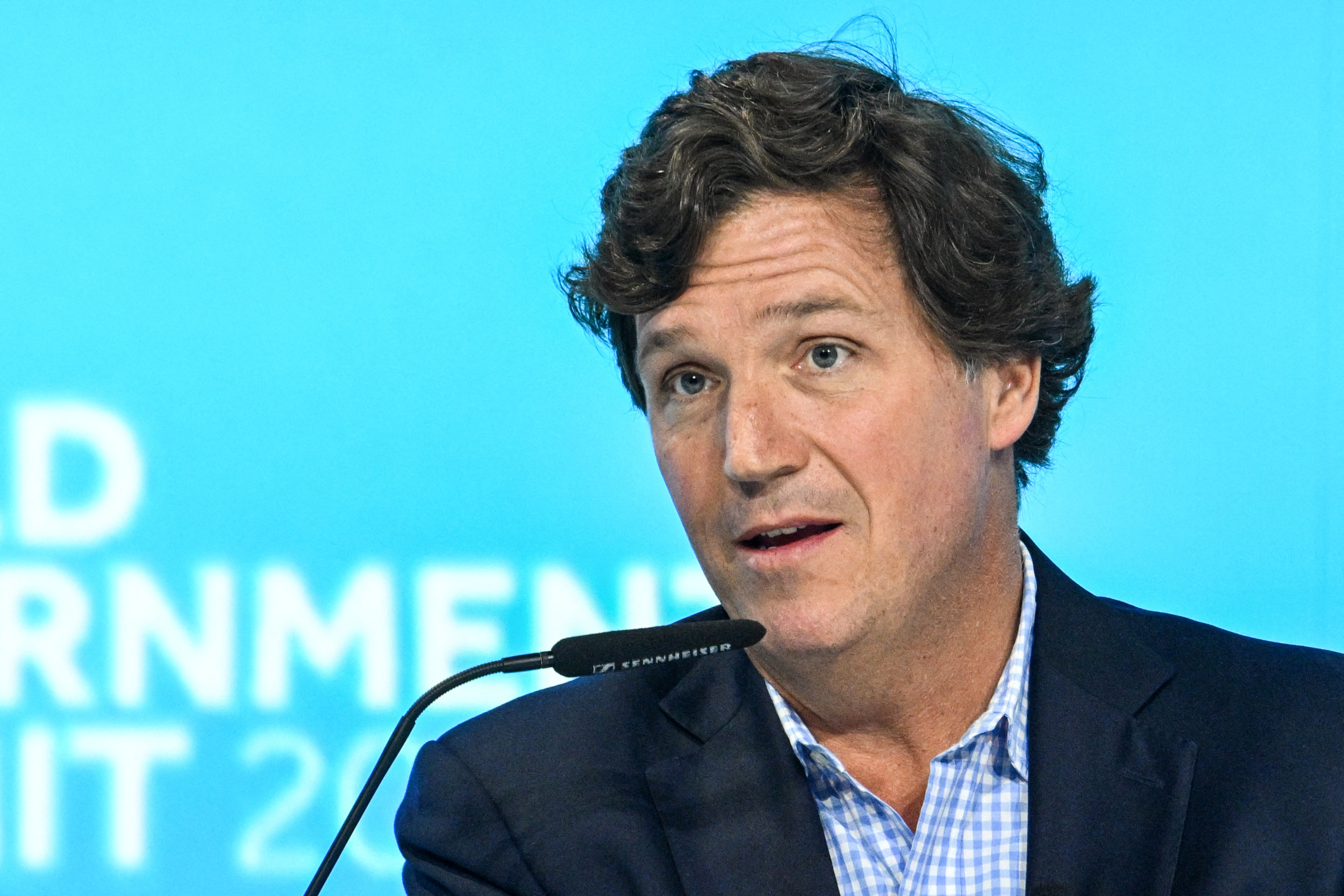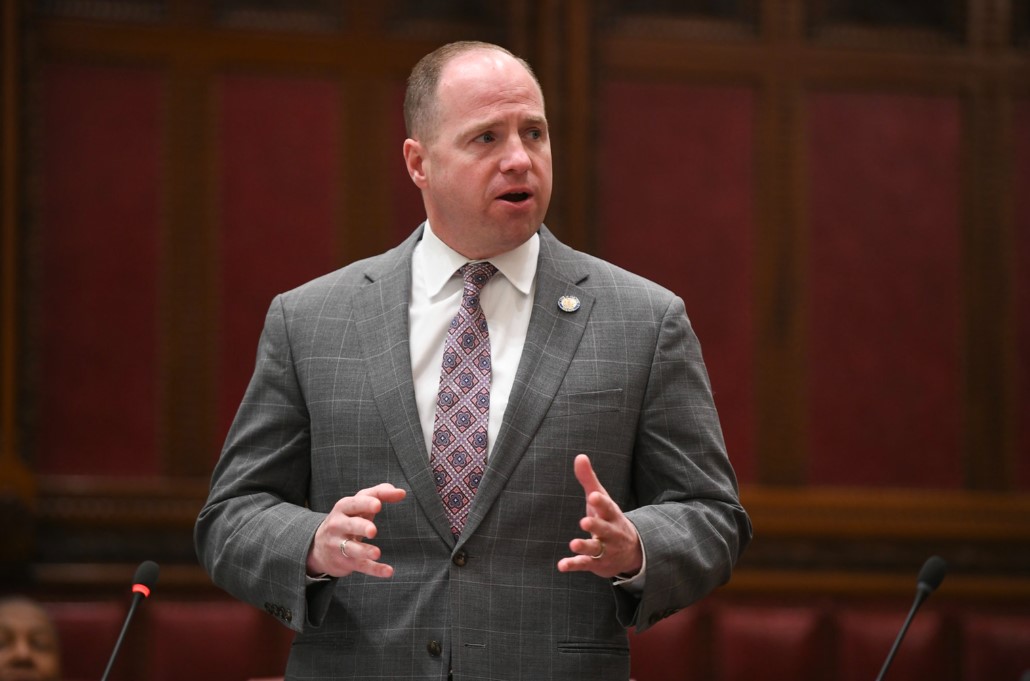The gimmick hotel has gone global: Treehouse hotels in Costa Rica (including one constructed from an upscaled Boeing 727); igloo inns in Sweden; bed and breakfasts for cave dwellers in New Mexico; a king-sized bed and minibar just don't do it anymore for many travellers. While these unique lodgings can make for unforgettable experiences, sometimes the idea doesn't hold much water. For an underwater hotel room in the Maldives—and, the juggernaut luxury industry taking over the islands—it can mean environmental disaster.
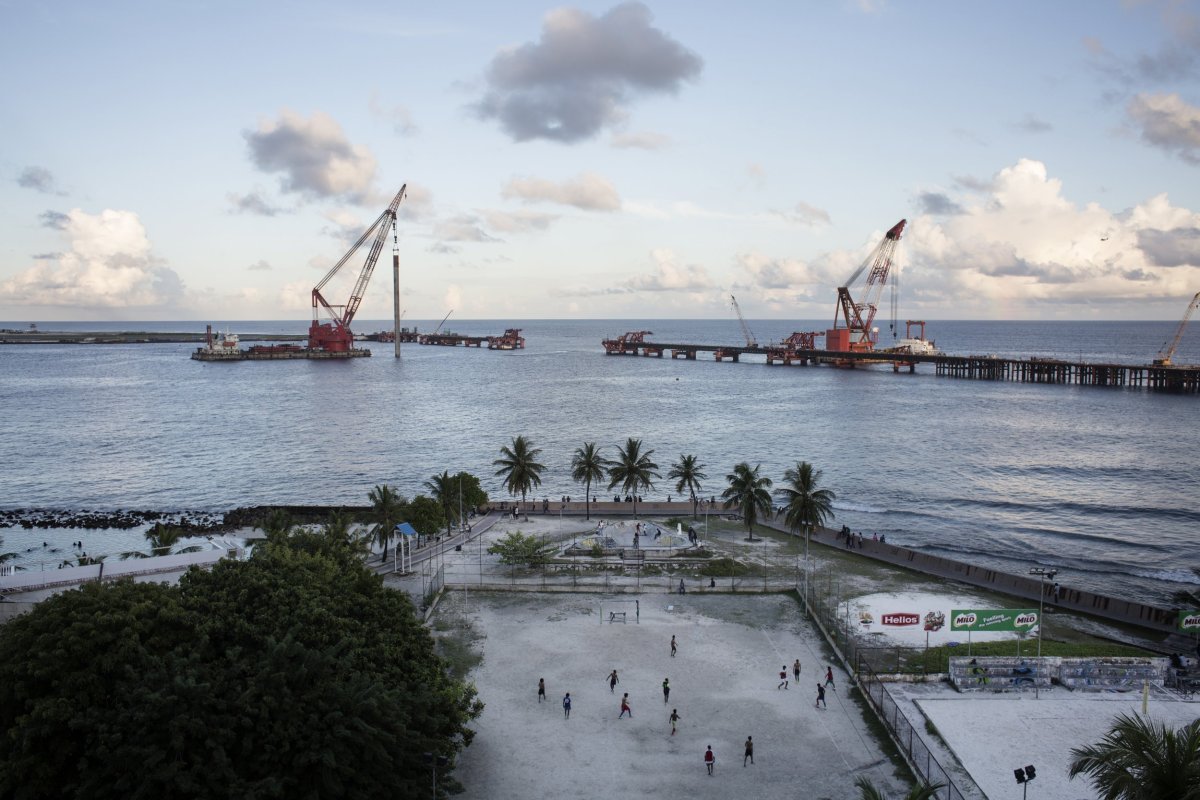
You might have heard of the Maldives when Hailey Baldwin and Justin Bieber took a vacation there; you might have heard of them as the honeymoon destination for the uber-wealthy; or, you might have heard that they're one of the countries most threatened by climate change, with a chance that within the next century they will be completely drowned in the Indian Ocean.
"With an average elevation of about 4 feet, and with literally zero hills or mountains, the Maldives is the world's lowest-lying country. It will not survive the sea level rise caused by anthropogenic climate change," remarks environmental writer Stephanie Bernhard in a piece for Slate.
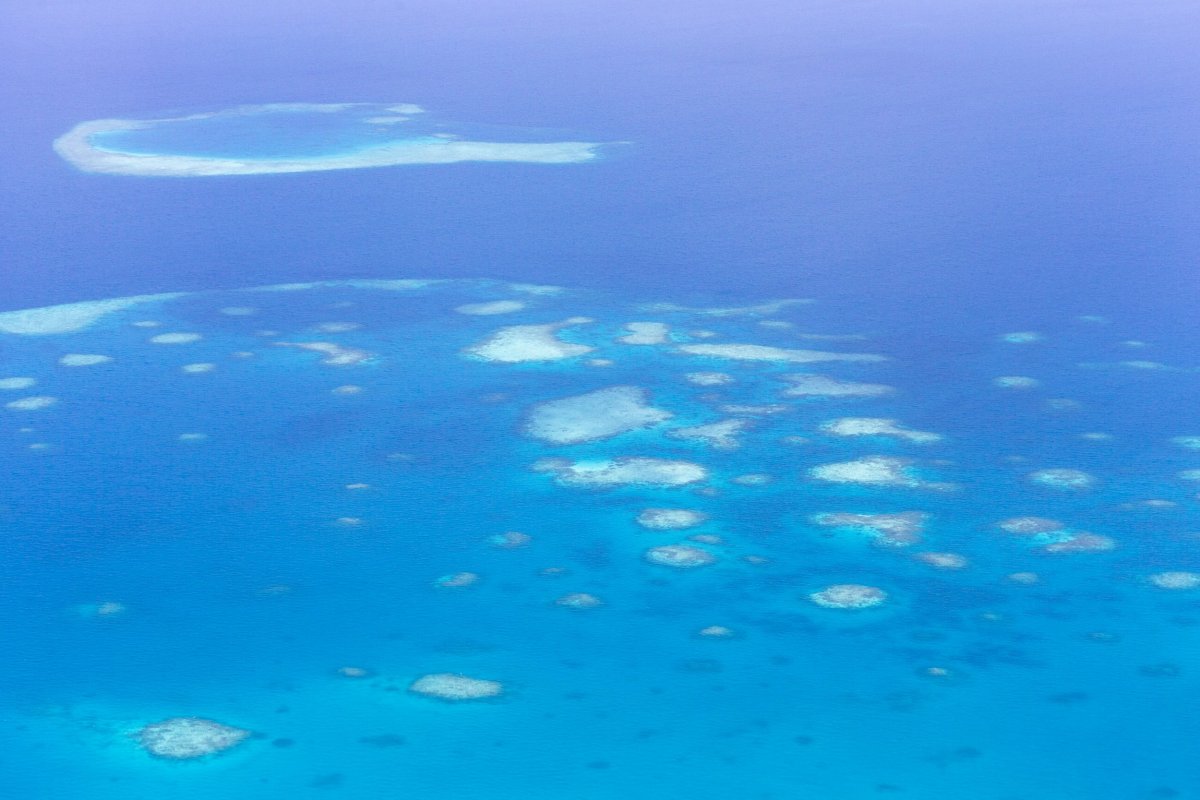
In 2009, Mohamed Nasheed, then the president of the Maldives, held the world's first underwater cabinet meeting. High-ranking political participants donned scuba gear and dove 20 feet under the sea, communicating on waterproof dry erase boards, urging signatures for every country to reduce carbon emissions. This piece of political theater had a clear and powerful thesis: If we don't address climate change, we can only conduct business in the Maldives underwater.
So why do resorts host expensive underwater hotel rooms, below sea level wine cellars and overwater golf courses in a region with delicate reefs and rising ocean temperatures, yet do not advocate an environmental mission?
The irony clearly manifests itself in an almost James Bondian level of ignorant villainy: The very real threat of an island nation being completely submerged is turned into a gimmick for the wealthiest of tourists. With a roughly half-million population facing the eradication of their homeland, luxury developers see it as a marketing opportunity instead of a threat.
Even though tourism is a huge industry in the Maldives, accounting for one-third of their economic output, the local population is regularly shut out of jobs at these resorts. Dr. Lareef Zubair, an environmental scientist at Columbia University, told Newsweek that last year, "there was a boycott campaign against the hotels in a means to pressure the government, because a large percent of their economy stems from tourism, but that covers a much smaller fraction of Maldivian's livelihoods, which comes from fisheries."
According to the last census, a little less than 30,000 Maldivians work in resorts, which is only 14% of the total workforce. And even those employed face pay discrimination; the Tourism Employees Association of the Maldives demanded last year the monthly minimum wage be raised to $600 (current averages for workers are between $200 and $250 per month), and that 80% of tourism jobs be set aside for Maldivians.
Alternative luxury resorts are all across the world, ones that officially align themselves with green initiatives and help local communities.
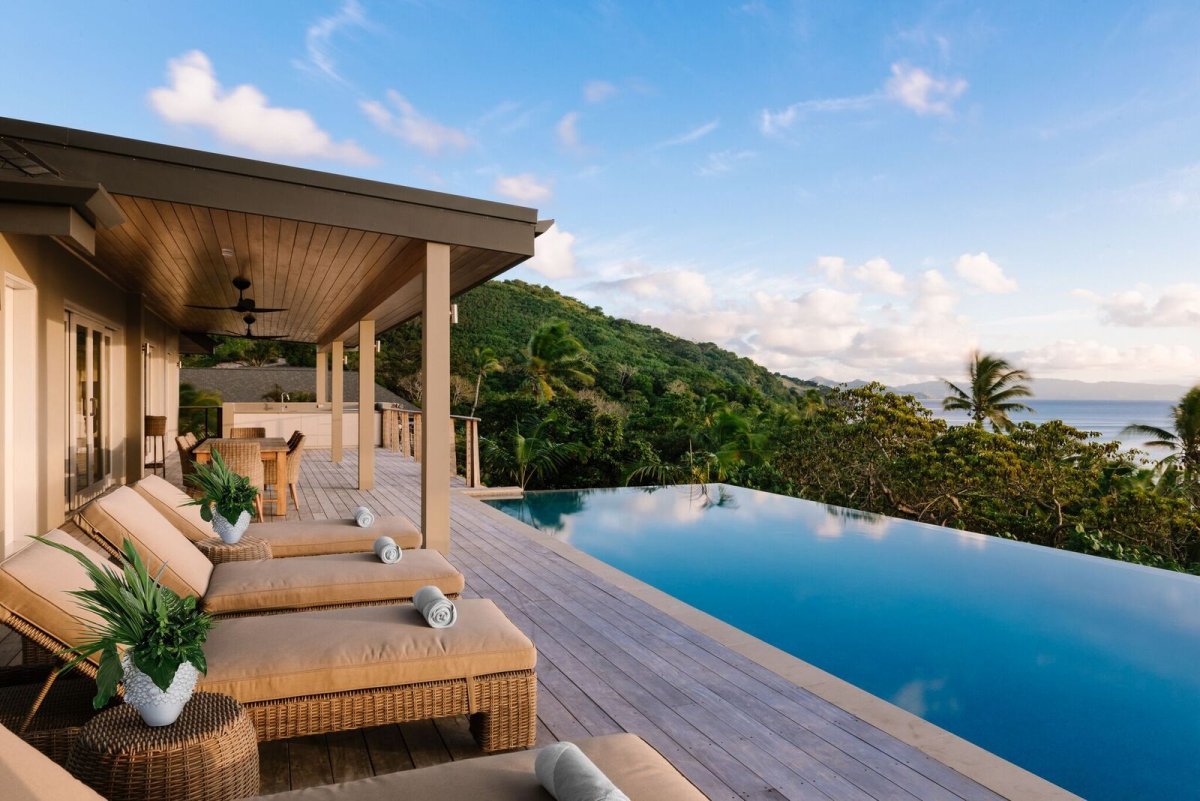
Take Kokomo Private Island Fiji, for example. The South Pacific luxury resort offers amenities like beachfront villas and spas, of course, but all through the lens of sustainability. Kokomo has initiated a Coral Restoration project on the island, a hydroponics rooftop garden and sustainably harvests food from the surrounding water.
For the latter initiative, the resort has partnered with Dock to Dish, an organization that links small-scale local fishermen with chefs and consumers; the United Nations Foundation found Dock to Dish one of the worldwide initiatives that would help the ocean, saying, "This new/old model of community supported fishing (CSF) cuts out the convoluted and sometimes sketchy international seafood processors and industrial fishers to a direct relationship with local fishermen and the more sustainable seafood selections they catch."
Their executive chef, Cory Campbell, said, "Whilst I am driven by fresh food and my craft, my passion for Kokomo doesn't start in the kitchen, it begins with the island community from the fishermen and farmers and then works its way into the kitchen. Sustainability is key and I'll be looking to pave the way for the future of Kokomo by preservation."
![Four-Bedroom_Residence_Exterior_Ocean-view_[7867-LARGE]](https://d.newsweek.com/en/full/1380392/four-bedroom-residence-exterior-ocean-view-7867-large.jpg?w=1200&f=4b9b335657bdf7fb9ccceeb6c9f7c283)
The Six Senses Zil Pasyon resort in the Seychelles, as well as other locations, also leads in a tropical destination that supports green action.
Their official statement says that they're dedicated to the local and global environments by, "supporting threatened ecosystems by ridding the island of invasive species and creating genuine conservation value by our propagation of rare local plants." They also boast their own reverse-osmosis plant and crystal water refinery to supply potable water without plastic bottles, and an organic garden to serve local food and beverages on the island, reducing the need for shipments which greatly reduces their carbon footprint.
Six Senses does as well have a resort in the Maldives but, compared to others in the country, they explicitly dedicate themselves to environmental issues facing the area, from promoting research and awareness of marine life to giving back to the local population in the form of education, development, and service.
Even if you want to climb up to a treehouse or sleep with the fishes on your next vacation, stay at a resort that won't give you a sinking feeling.
Uncommon Knowledge
Newsweek is committed to challenging conventional wisdom and finding connections in the search for common ground.
Newsweek is committed to challenging conventional wisdom and finding connections in the search for common ground.
About the writer
To read how Newsweek uses AI as a newsroom tool, Click here.




